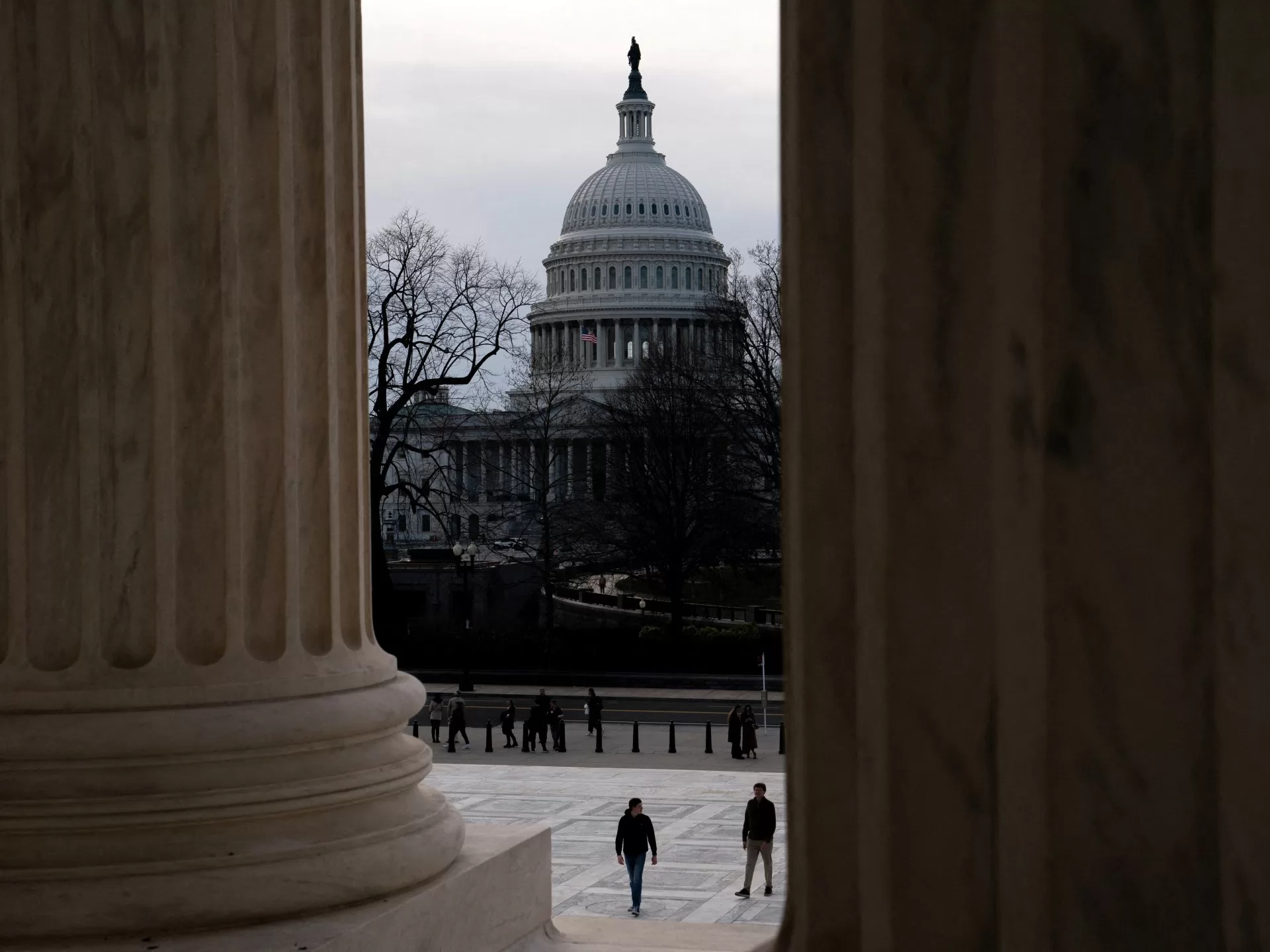Senate passed the bill after hours of gridlock over funding for three-quarters of the government for the next six months.
President Joe Biden has signed a $1.2 trillion package of spending bills after the United States Congress passed the long overdue legislation just hours earlier, ending the threat of a partial government shutdown.
“The bipartisan funding bill I just signed keeps the government open, invests in the American people, and strengthens our economy and national security,” Biden said in the statement on Saturday.
The White House said Biden signed the legislation at his home in Wilmington, Delaware. It had cleared the Senate by a 74-24 vote shortly after funding had expired for for three-quarters of the government at midnight.
But the White House sent out a notice shortly after the deadline announcing that the Office of Management and Budget had ceased shutdown preparations because there was a high degree of confidence that Congress would pass the legislation and the president would sign it on Saturday.
Key federal agencies including the departments of Homeland Security, Justice, State and Treasury, which houses the Internal Revenue Service, will remain funded through September 30 after the bill was passed in the Democratic-majority Senate.
But the measure did not include funding for mostly military aid to Ukraine, Taiwan or Israel, which are included in a different Senate-passed bill that the Republican-led House of Representatives has ignored.
The bill also eliminates US funding for the United Nations Relief and Works Agency for Palestine Refugees (UNRWA) – which provides vital services on the ground to Palestinians in Gaza and across the Middle East – until March 2025.
The agency lost millions of dollars in international support, led by the US, following allegations by Israel that some of its staff in the Gaza Strip were involved in the October 7 Hamas-led attacks.
The House on Friday voted 286-134, narrowly gaining the two-thirds majority needed for approval of the six-bill package which represents the largest and most contentious section of federal funding.
More than 70 percent of the money is set for defence spending, with the bills also covering the military, homeland security, healthcare and other services. Funding for those programmes was set to expire on March 22.
Top Senate Democrat Chuck Schumer said it was “a very long and difficult day, but we have just reached an agreement to complete the job of funding the government”.
“It is good for the country that we have reached this bipartisan deal. It wasn’t easy, but tonight our persistence has been worth it,” he added.
We have just reached an agreement to complete the job of funding the government tonight.
It wasn’t easy, but tonight our persistence has been worth it.
It is good for the American people that we have reached this bipartisan deal.
— Chuck Schumer (@SenSchumer) March 23, 2024
It took legislators six months into the current fiscal year to get near the finish line on government funding, the process slowed by conservatives who pushed for more policy mandates and steeper spending cuts than the Democratic-led Senate or White House would consider.
The impasse required several short-term, stopgap spending bills to keep agencies funded.
The first package of full-year spending bills, which funded the departments of Veterans Affairs, Agriculture and the Interior, among others, cleared Congress two weeks ago with just hours to spare before funding expired for those agencies.
The vote tally in the House reflected anger among Republicans over the content of the package and the speed with which it was brought to a vote. House Speaker Mike Johnson brought the measure to the floor even though a majority of Republicans ended up voting against it.
To win over support from Republicans, Johnson touted some of the spending increases secured for about 8,000 more detention beds for migrants awaiting their immigration proceedings or removal from the country – or about a 24 percent increase from current levels. Republican leadership highlighted more money to hire about 2,000 border patrol agents.
Democrats, meanwhile, boasted of a $1bn increase for Head Start, an early childhood development programme, and new childcare centres for military families. They also played up a $120m increase in funding for cancer research and a $100m increase for Alzheimer’s research.
